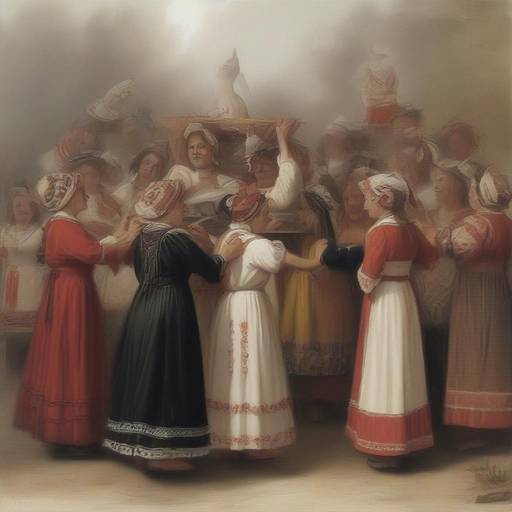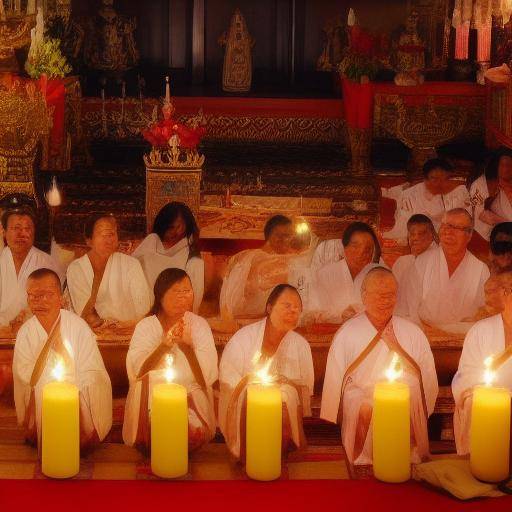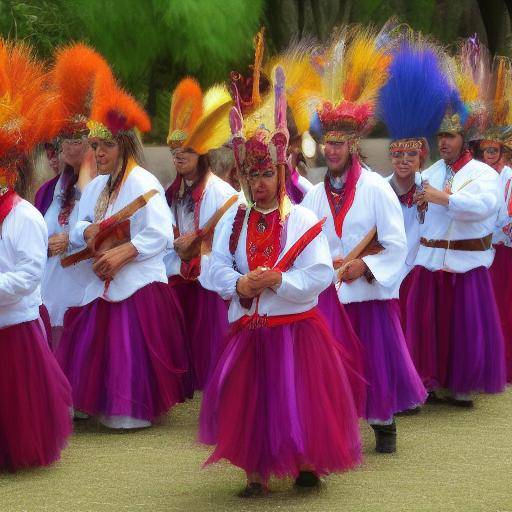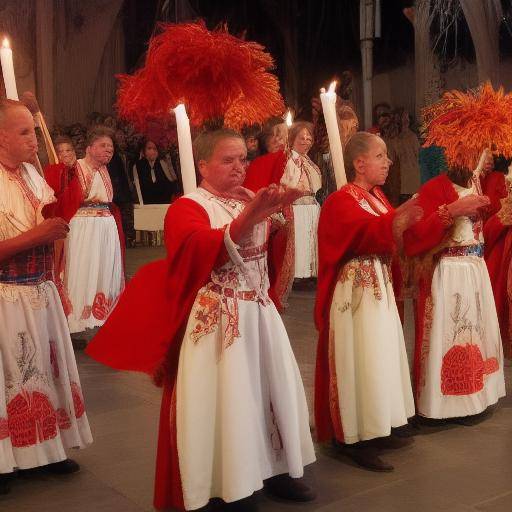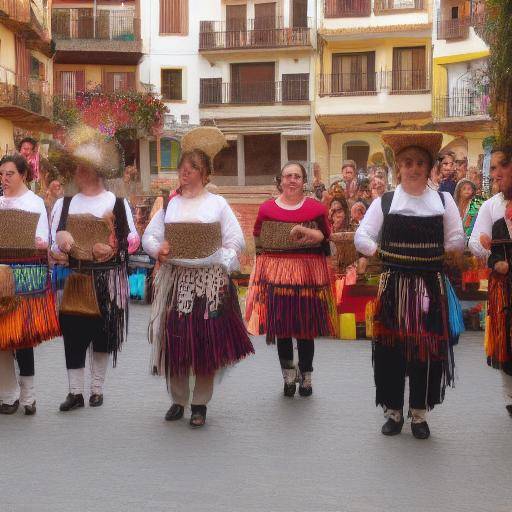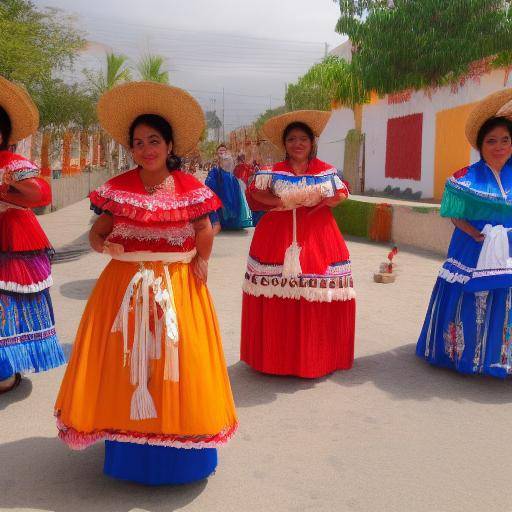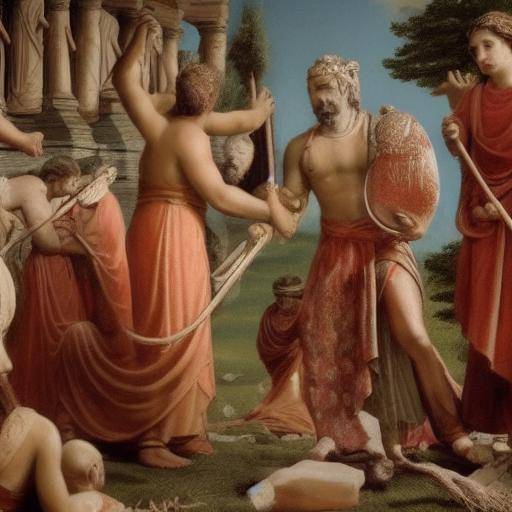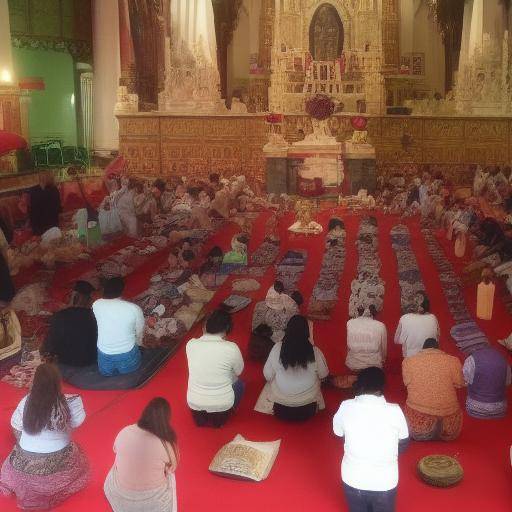
Hindu culture is permeated with a rich tradition of rituals and ceremonies, many of which have a primary purpose of purification. These rituals are not only important for spirituality and religion, but also play a crucial role in the daily lives of millions of Hindus. In this article, we will explore in depth the purification rituals in the Hindu culture, its history, meaning, contemporary practices and its relevance in the present world.
Introduction
The purification rituals are an integral part of the Hindu culture, since it is considered that purification is essential for spiritual, mental and physical harmony. These rituals, known as "Shuddhi" in Sanskrit, aim to eliminate negativity, purify the soul and renew the mind and body. Throughout this article, we will discover the historical evolution of these rituals, their role in contemporary society, their comparison with other cultures and future predictions about their relevance.
History and Background
The rituals of purification have deep roots in ancient Hindu civilization, where ritual cleansing was considered essential not only for physical aspects, but also for spiritual and mental aspects. The concept of purification is expressed in the Vedic scriptures, where rituals are described as the "Snanam" ( ceremonial bath) and "Yajna" (ordinary rituals to fire). Over the centuries, these rituals have evolved, adapting to different religious and philosophical currents within Hinduism.
An important milestone in the history of purification rituals takes place during the Dharmashastras period, legal texts that prescribe the rules of social and religious conduct. Here detailed rules were established for the conduct of purification rituals, defining the procedures, appropriate moments and circumstances in which they should be carried out.
The arrival of the imperial dynasties in India also influenced the practice of purification rituals, with the construction of temples and the promotion of great religious festivals that emphasized the importance of ritual purity. European colonization brought with it significant changes in the practice of rituals, as many ancient traditions were influenced by Western customs and beliefs.
Analysis in Deep
The purification rituals play a crucial role in the daily life of many Hindus, as they are considered a means to purify the body, mind and environment. In addition to their spiritual significance, these rituals also have social repercussions, as they foster family and community unity through collective participation in ceremonies.
The purification rituals remain an active part of contemporary Hindu culture. Technological advances and globalization have changed the way some of these rituals take place, but their fundamental importance remains undeniable. At present, there is a greater emphasis on the preservation of ritual traditions, with a renewed interest on the part of younger generations in understanding and participating in these practices.
Exhaustive examination
The purification rituals not only have a spiritual and cultural relevance, but have also awakened the interest of many scholars and experts in comparative religion. The deep understanding of philosophy behind these rituals, the psychology of purification and its impact on modern society are themes of active study and debate among academics.
Comparison
The rituals of purification in Hindu culture are distinguished by their holistic approach, which encompasses not only physical purification, but also mental and spiritual purification. Unlike other purification practices found in different cultures, the depth and scope of Hindu rituals often incorporate unique ritual and ceremonial elements, such as the use of mantras, the participation of specialized priests and the presence of specific symbolic elements.
Practical Tips and Accessible Tips
While purification rituals may seem disconcerting for those who are not familiar with Hindu culture, there are some fundamental practices that can help to understand and appreciate their importance. Some practical tips include:
- Open to Learning: Learning about purification rituals through reliable and respectful sources can offer a deeper insight into their meaning and purpose.
- Respecting traditions: If you have the opportunity to participate in a purification ritual, it is important to demonstrate respect for the customs and practices observed by the Hindu community.
- Keeping an open mind: Understanding purification rituals requires an unbiased approach and opening up to new perspectives on spirituality and religion.
Conclusions and FAQs
In short, purification rituals play a fundamental role in Hindu culture, reflecting a profound interconnection between the spiritual, the social and the individual. As society evolves, it is crucial to appreciate and understand the importance of these rituals as an expression of identity and cultural continuity.
Frequently asked questions
1. What are the most common purification rituals in Hindu culture?
Common purification rituals include ritual bathing, offerings to specific deities, participation in religious festivals and reciting sacred mantras.
2. What is the importance of purification in Hindu culture?
Purification is considered essential to maintain spiritual, mental and physical harmony, and it is believed that it eliminates negativity and renews the soul and body.
3. How can non-Indians understand and respect the purification rituals?
Understanding and respect for purification rituals can be achieved through respectful learning, respect for traditions and mental openness towards new perspectives.
4. What lessons can other cultures learn from Hindu purification rituals?
Understanding the depth of holistic purification and its effect on community unity can offer valuable lessons on the interconnection between the physical, the mental and the spiritual.
5. How are the purification rituals adapted to the modern era?
The purification rituals have undergone adaptations through technological and digital means, while renewed interest in preserving ritual traditions.
6. What impact do purification rituals have on contemporary society?
The rituals of purification not only play a role in individual spirituality, but also foster social cohesion and the preservation of cultural traditions.
These frequent questions offer a deeper view of the purification rituals in Hindu culture, addressing common concerns and providing a greater understanding of their meaning and practice.
Ultimately, the understanding of the purification rituals in Hindu culture offers an enriching view of a rich and complex tradition that remains relevant in the contemporary world. To dominate the rituals of purification means to immerse yourself in a world of meaning, symbolism and spirituality that transcends cultural boundaries and awakens a deep sense of connection with the divine.
















